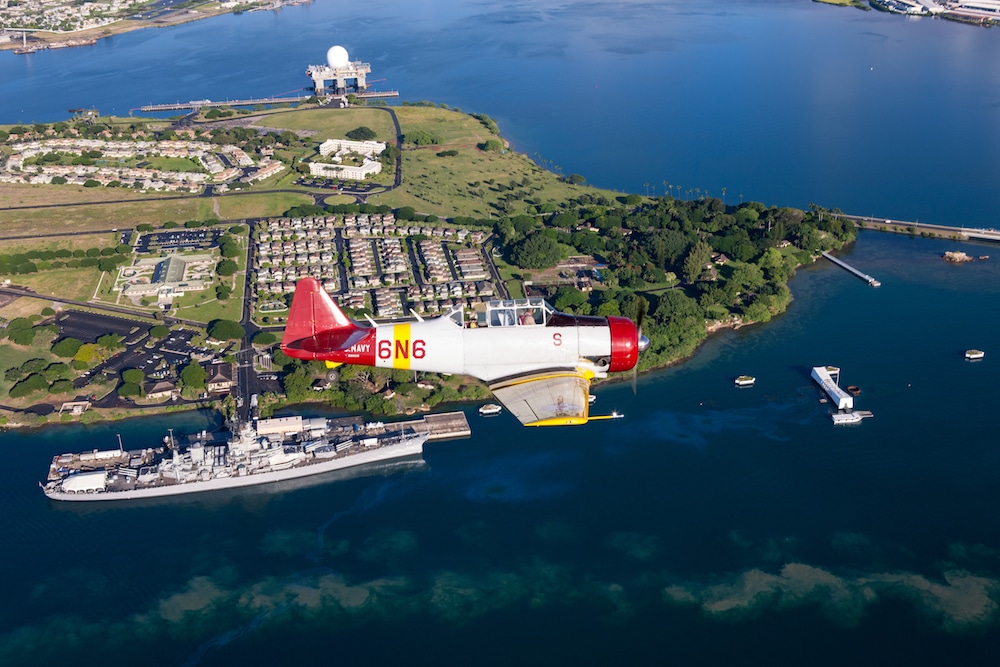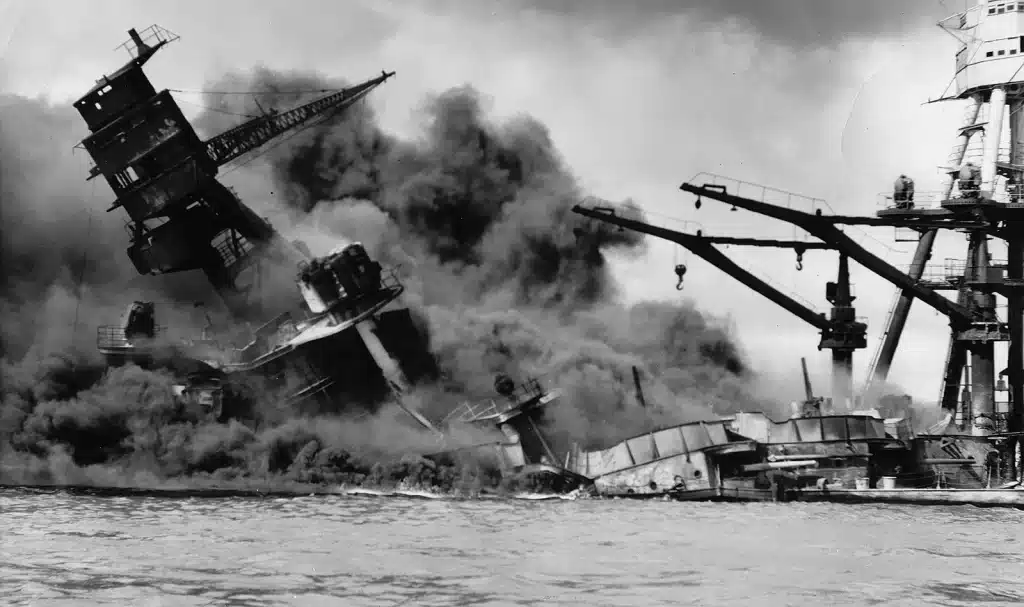What is pearl harbor?
Pearl Harbor is a U.S. naval base located on the island of Oahu, Hawaii. It is best known for the surprise attack by the Japanese on December 7, 1941, which resulted in the deaths of 2,403 Americans and the destruction of many of the U.S. Pacific Fleet’s ships and aircraft.

The attack led to the United States’ entry into World War II. Today, Pearl Harbor is a National Historic Landmark and home to the USS Arizona Memorial, which honors the sailors and Marines who died on the battleship USS Arizona during the attack, as well as other memorials and museums that commemorate the event and its significance in American history.
RELATED: VIDEO: Begum Rokeya’s 137th Birthday
Table of Contents
Why did the Japanese attack Pearl Harbor?
The Japanese attacked Pearl Harbor on December 7, 1941, as a surprise military strike against the United States. They did so because they believed that the U.S. posed a threat to their expansionist plans in Southeast Asia and the Pacific and that a surprise attack on the U.S. Pacific Fleet would give them the advantage they needed to conquer the region.

Additionally, Japan was running out of resources, especially oil, and needed to secure new sources of raw materials to fuel its military and economy. The attack on Pearl Harbor was intended to cripple the US Pacific Fleet, giving Japan the time it needed to secure these resources without US interference.
What was Japan’s goal in attacking Pearl Harbor?
Japan’s goal in attacking Pearl Harbor on December 7, 1941, was to weaken the U.S. Pacific Fleet and prevent the United States from interfering with their expansionist plans in Southeast Asia and the Pacific. By launching a surprise attack, Japan hoped to cripple the U.S. Pacific Fleet and gain the time it needed to secure resources in the region without American interference.

Additionally, Japan’s leaders believed that the United States posed a long-term threat to their empire and that a war with the U.S. was inevitable. Therefore, they saw the attack on Pearl Harbor as a way to strike the first blow and gain an early advantage in the war.
Finally, Japan was facing an oil embargo and economic sanctions from the United States, United Kingdom, and other countries, which was making it difficult to sustain their military machine and industry. The leaders believed that by attacking the US Pacific fleet, they could weaken American naval power and gain access to the resources in the Pacific, which would help them to sustain their military and economy.
RELATED: VIDEO: Donald Pandiangan’s 77th Birthday – Indonesia
Did Japan regret Pearl Harbor?
Japan did not express regret for the attack on Pearl Harbor immediately after it occurred. At the time, the attack was widely celebrated in Japan as a great victory and a demonstration of the country’s military power. Japan’s leaders believed that the attack had achieved its objectives and that it would give them the time and resources they needed to achieve their expansionist goals.

However, as the war progressed and Japan found itself facing a prolonged and costly struggle against the United States and its allies, some Japanese leaders began to realize that the attack on Pearl Harbor had been a grave strategic error. The U.S. entry into the war was a major turning point and Japan never fully recovered from the damage inflicted on its naval and air force at Pearl Harbor.
It is worth noting that it is not clear whether the entire Japanese society or only a segment of it, specifically the military and political leaders, had second thoughts on the attack. However, the Japanese government never officially apologized or expressed regret for the attack on Pearl Harbor.
RELATED: TODAY: Celebrating Ana Mercedes Hoyos and Biography
Did Japan apologize to the US for Pearl Harbor?
Japan has never formally apologized to the United States for the attack on Pearl Harbor. The Japanese government has issued statements expressing remorse for the war and for the suffering caused by Japan’s actions during the war, but it has not specifically apologized for the attack on Pearl Harbor.

After World War II, Japan adopted a pacifist constitution and renounced war as a means to settle disputes. Japan’s official position has been that they regret the war and the suffering caused by the war and that they have taken steps to ensure that such a war never happens again.
It’s worth noting that a number of Japanese politicians and officials have expressed regret for the attack on Pearl Harbor, and some have visited the site of the attack to pay their respects to the victims. However, a formal apology from the government of Japan has not been made.
What were the three main reasons for the Japanese attack on Pearl Harbor?
The Japanese attack on Pearl Harbor on December 7, 1941, was a complex event with multiple causes and reasons. However, some of the main reasons for the attack were:
- Japan’s desire for expansion: Japan was seeking to expand its empire in Southeast Asia and the Pacific, and saw the United States as a potential obstacle to that expansion. By attacking the U.S. Pacific Fleet at Pearl Harbor, Japan aimed to weaken the U.S. military’s ability to intervene in the region.
- Economic reasons: Japan was heavily dependent on imports, particularly oil, and feared that the U.S. would cut off its access to these resources. By attacking Pearl Harbor, Japan aimed to neutralize the U.S. Pacific Fleet, giving them the time they needed to secure resources in Southeast Asia without American interference.
- Strategic reasons: Japan believed that a surprise attack on Pearl Harbor would cripple the U.S. Pacific Fleet, buying them time to achieve their military objectives in Southeast Asia without having to contend with a powerful U.S. naval presence in the Pacific.
It is worth noting that some historians also argue that there were internal factors in Japan that also played a role, such as the desire of the military to have a more active role in the government and the belief that Japan could only survive by expanding its empire.

